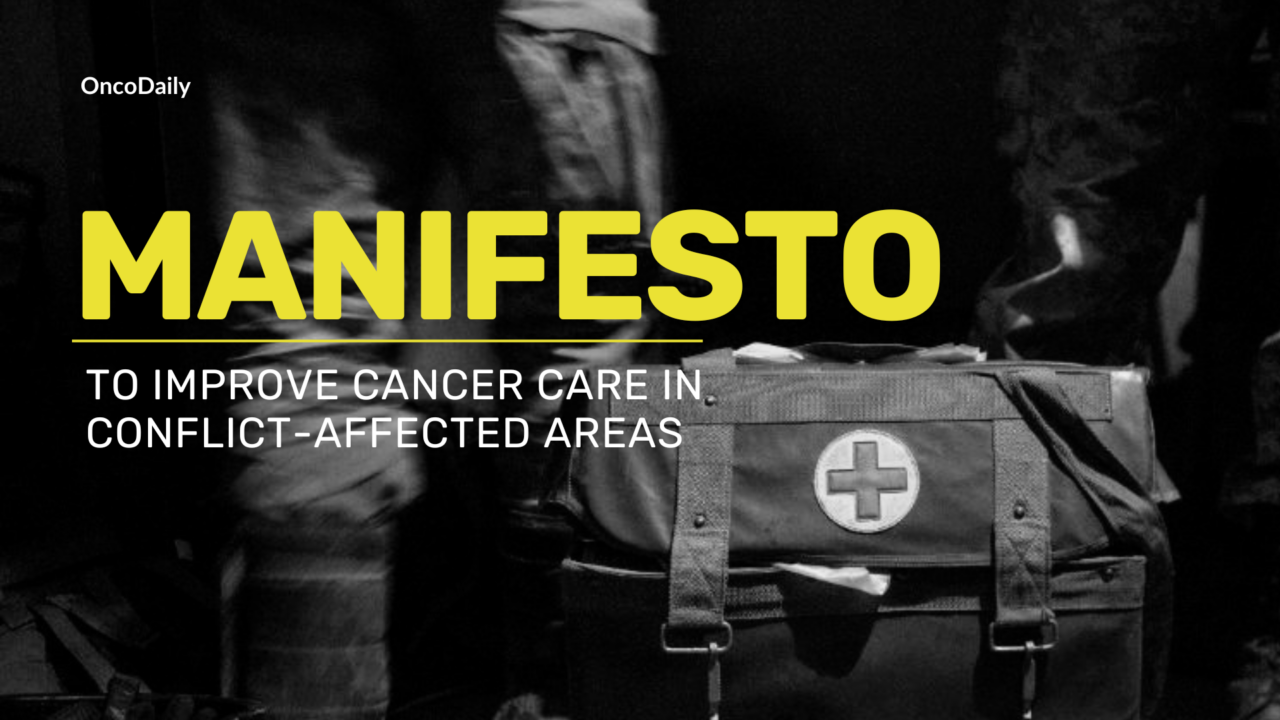War brings devastation, leaving cancer patients to suffer in silence as health systems collapse around them. At the First Global Summit on War and Cancer, global leaders united to address this crisis, culminating in the development of a crucial Manifesto, now published in The Lancet. This call to action demands immediate measures to protect cancer care amidst the chaos. As hospitals are attacked and medical supplies are cut off, this is a call to the world: Stand up, take action, and defend the most vulnerable. We can’t let cancer patients to become the forgotten victims of conflict.
Senior Author Jemma Arakelyan, CEO at the Institute of Cancer and Crisis:
“Increasingly, as wars across the globe continue to escalate, cancer patients face an ever-growing series of urgent challenges in conflict-affected regions, falling victim to the collateral damage of war on hospitals, on the healthcare supply chain, and the en massive displacement of patients that war causes.”
Dr Tedros Adhanom Ghebreyesus, the Director-General of the World Health Organization (WHO):
“Amid the horrors of war, it’s easy to forget about cancer. War destroys health systems and people affected by cancer are particularly vulnerable. There are no emergency kits to treat cancer.
There are no field hospitals to provide comprehensive care or diagnostic services. Essential health services and pharmaceutical supply chains are often badly disrupted. WHO and partners are working to protect the vulnerable populations affected by both cancer and conflict.”
Prof. Mark Lawler, Professor of Digital Health at Queen’s University Belfast, co-chair of the newly established European Cancer Organisation’s Special Network on Emergencies and Crises:
“Our Manifesto, titled Manifesto on Improving Cancer Care in Conflict-Impacted Populations, published in The Lancet, sets out seven key priorities to ensure that cancer services are preserved and, more importantly, that patients are protected and cared for during conflict.”
Gevorg Tamamyan, Editor-in-chief of OncoDaily, President-Elect of SIOP Asia Continental Branch and Pediatric Oncology East and Mediterranean (POEM) Group:
“This Manifesto presents an immediate and essential course of action to address the devastating ramifications of armed conflict of cancer care, control, and prevention.”
Her Royal Highness Princess Dina Mired of Jordan, the Honorary President of the European Organization for Research and Treatment of Cancer (EORTC), Patron of the International Society of Paediatric Oncology (SIOP) and Past President of the Union for International Cancer Control (UICC):
“Cancer simply thrives in wars and in refugee bodies. We, as the medical community, need to step up, now more than ever, to protect and safeguard the sanctity of human life during war. We need to say loud and clear that we reject the killing and destruction of humanitarian and international legal and human rights infrastructure.
We should shout at the top of our lungs that we will not let justice, equity, and humanity become the main collateral damage in wars.”
Jemma Arakelyan:
“Cancer patients have been dealt a farther blow when the total health infrastructure, including healthcare personnel, was targeted. The global health community must collectively voice the strongest solidarity for the sanctity and protection of health services, as well as for the establishment of clear cancer care models to protect cancer patients during any conflict.”
Mark Lawler:
“Conflict and complex emergencies impact cancer patients in different ways and must be addressed urgently. The recent barbaric attack on the Okhmandyt Hospital, the largest children’s cancer treatment center in Ukraine, emphasizes the enormous damage that war can wreak on cancer patients and on cancer health systems.”
Gevorg Tamamyan:
“We call on governments, international organizations, healthcare providers, and the global community to unite in support of this manifesto and take immediate action to safeguard the lives of cancer patients caught in the crosshairs of war.”


